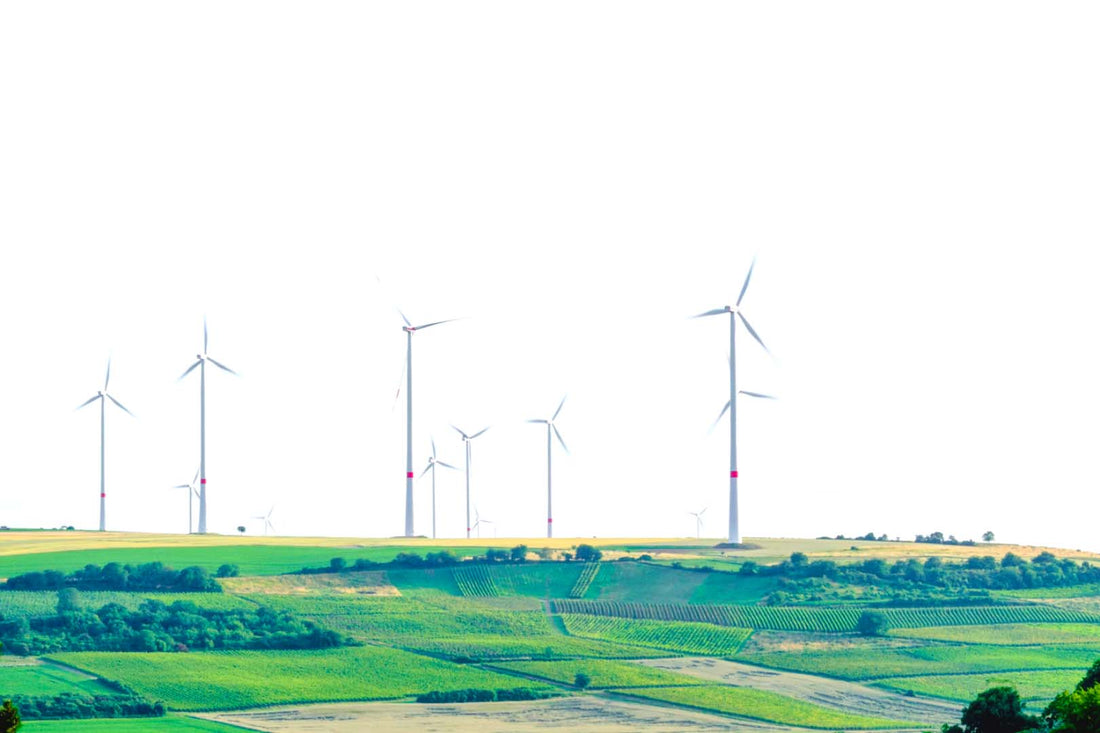Sustainability is a word that politicians and companies like to use. Especially the latter like to draw a utopia of green meadows, happy animals and proud people who have created all this good and beautiful. You can and must be suspicious. Last but not least, if a z. For example, a billion-dollar corporation tells of all its supposedly good deeds.
Of course, sustainability is now not just a buzzword that triggers people who want to do good, it is also a marketing strategy, sometimes even a scam. Below I would like to introduce some types of companies that I have encountered in my life. The list is (unfortunately) not exhaustive.
The ignorant ones
Let's start with companies that completely ignore sustainability. And yes, there really are. It just doesn't exist in their universe. No worries about the environment, climate, employees or anything else that could be related to sustainability. This appears to them to be luxurious frills that only do-gooders who have no idea about real life have time for. They also think they know that there is no way you can earn anything with sustainable measures, because it is all far too complicated and unnecessary and only makes everything pointlessly more expensive.
This is terrifying on several levels. You don't want to believe it. And yet it is reality. At Aninsu, we have dealt with quite a few of these companies when looking for possible partners for different products. Behind them are people whose universe doesn't extend further than the front door. That's where all interest stops, no matter what it's about, because it doesn't benefit you immediately and directly. The kind of people who say "Does that have to be?" consider a legitimate argument for not doing something. It is a questionable mixture of ignorance, arrogance and know-it-all combined with selfishness and disinterest.
The unscrupulous
And if you think that ignoramuses are really bad, then you meet the unscrupulous and you will be taught otherwise. These are people who have recognized that there are an increasing number of people who see global sustainability as the only chance for a meaningful future for mankind. And such phenomena can always be easily monetized ... Behind such companies is what happens when ignorance, arrogance and know-it-all as well as egotism and disinterest meet greed.
What these people do doesn't really matter to them as long as it brings in as much gravel as possible. And if you have to tell people that everything is fair, green and great, then they tell you. However, one notices very quickly during the conversation that their concern is not to implement the points raised, but only to pretend that it rains money at the end of the day. However, it becomes particularly perfidious when these people manage to convey a certain professionalism and credibility. Then sustainability suddenly becomes an inescapable lie. Make no mistake, these are not people who do the right thing for the wrong reasons. These are people who talk about the important issues just to enrich themselves without there being any real counterweight to what they say.
Free riders
Imagine someone relatively indifferent to sustainability. It's just a topic that doesn't play a role in one's own reality of life. However, one has heard that it is good for the image if one does something good from time to time. So you do something on the side in order to be able to write a little something on the flag. According to the motto: "Yes, yes, we were there too." Companies that are just doing something somewhere and on the side (often more badly than right) try to get a bit of the sustainability hype for themselves, but then don't mean it so seriously that their "commitment" would be of any use to anyone. And so their measures are of no use to them either, because they only planted a few trees, because "everyone is doing it right now". And so marketing becomes a heap of untapped potential and sustainability efforts a drop in a damn hot rock.
Of course, there are also companies that take it a little more seriously. And so trees are not only planted on special occasions, but with every order or even with the purchase of every product. While consumers have the stale aftertaste that this only happens to make them feel better, because apart from these campaigns one looks in vain for sustainability at these companies: there is no proactive information, no meaningful answers to inquiries and the product range is like that per se lasting like a bush fire.
The forced
These companies, where the unsuspecting workforce does something because someone in management has heard or read that sustainability is a trending topic, really do exist. You can also see it very clearly in the results of the efforts of everyone involved. Measures don't match the products, the communication doesn't match the brand and the effect is as enormous as a yoga workshop for paraplegics. And just as cynical.
Trends are just one thing: they are usually short-lived, of no far-reaching importance and if you feel compelled to participate because the "supreme commander" has thought it that way, then it can only lead to the optimum ... Aside from the fact that sustainability isn't a trend but the only temporary way out of our self-inflicted annihilation, this is a very good way of realizing that any topic only works if everyone understands and supports it . Coercion in itself is not really sustainable and accordingly will not lead to sustainability.
The conscientious
Then there are the companies that really mean business. They understand what the topic means, how it can be implemented and, above all, that cheap prices and real sustainability are, at least today, two paths that lead in different directions. Today's reality means: if your product and your company should be verifiably sustainable in as many respects as possible, then you pay extra everywhere and some things are almost impossible, which quickly leads to the realization that 100% sustainability is not feasible as of today , unless you would literally do everything yourself, which would mean, however, that you would no longer see the start of sales of your products due to the effort in this life.
This initially leads to frustration and great doubts, then to lowering one's own standards and finally to the fact that one constantly has to make compromises between "what one should do" and "the little that really works". In the worst case, the money after product development is no longer sufficient for production or even marketing and the company ceases to exist before it has even really come to life.
A preliminary conclusion
Sustainability in business is often greenwashing. You can usually see that quickly, because some companies don't exactly try very hard and their actions only reflect their own ignorance. At the same time, they also give a lot of insight into their motivations...
Real sustainability can be recognized by the fact that it is not a side note and not a "feature" of many. Because it is not just a sales argument, but a lived, multi-faceted reality. And ultimately also because there is enough transparency on the part of the company for one to get the impression that one is not dealing with a trend product, but with an underlying, true philosophy.










